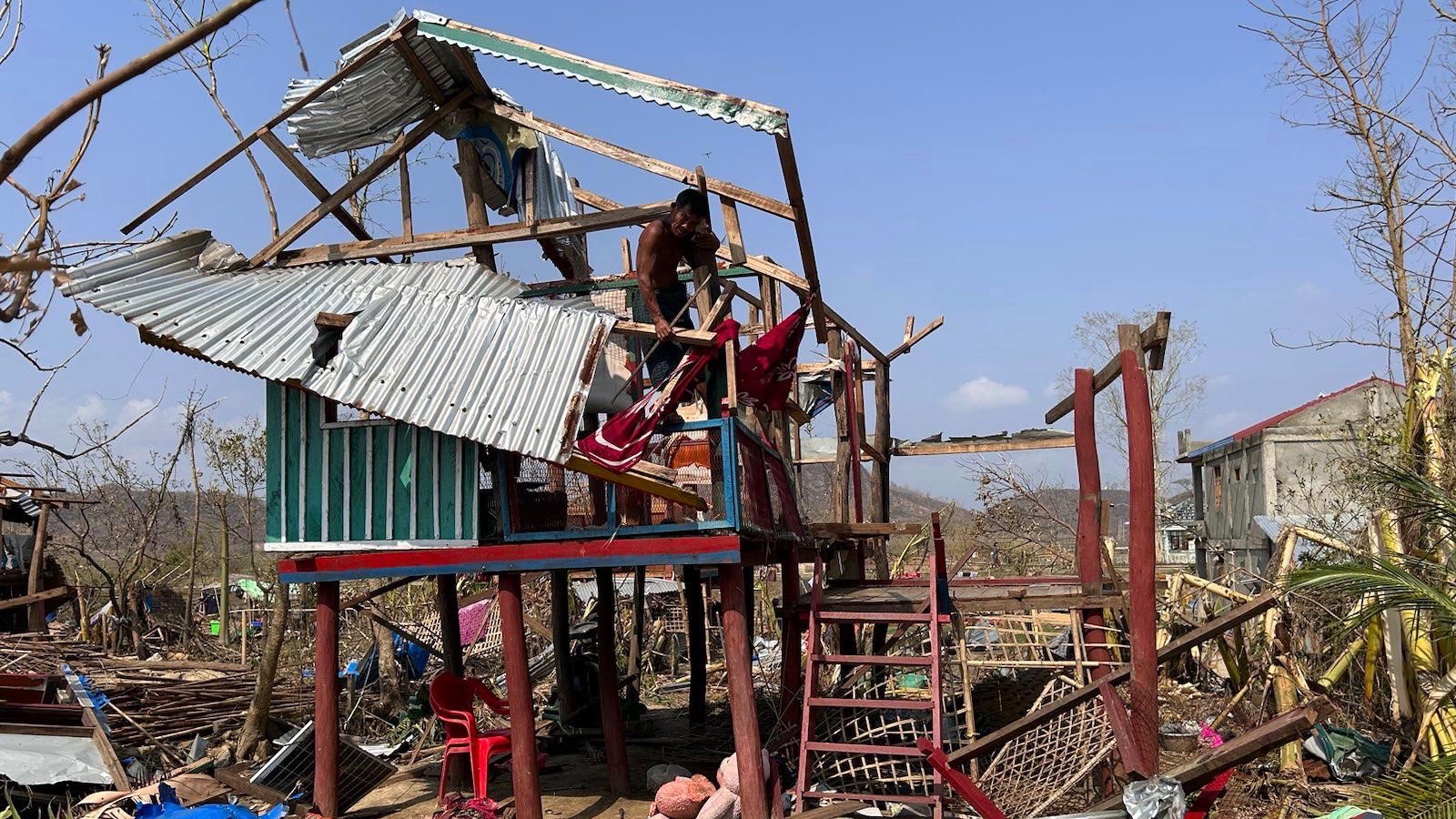A massive cyclone named “Mocha” hit northwest Myanmar this month, causing widespread destruction in several areas and killing at least 145 people as of May 18, according to figures provided by the country’s ruling military junta. Of those killed, 91 belonged to camps for internally displaced people.
A total of 21 townships (17 in Rakhine State and four in Chin State) have been declared as disaster-affected areas by the authorities. Situated near the western coast next to the Bay of Bengal, Rakhine State has been hit the hardest since the cyclone made landfall on May 14.
Rakhine State’s capital Sittwe, as well as its Rathedaung district, are the worst-affected areas. There has been widespread destruction of public infrastructure, including healthcare and water systems, according to a report released by the United Nations Office for the Coordination of Humanitarian Affairs (UNOCHA) on Sunday, May 21. The destruction of public utilities and transport systems has created a severe shortage of fuel, clean water, and food. The report adds that “Many people have been left without safe shelter and have lost all of their belongings, further exacerbating the already dire living conditions endured by many for the past three years due to the pandemic, ongoing conflict, and economic instability.”
#CycloneMocha destroyed thousands of homes in #Myanmar, cut off power and left entire communities in ruins without basic services and supplies.
🚨 More funding is crucial to address emerging needs and ensure timely delivery of aid to affected people.
➡️ https://t.co/wXJJWmfuXi pic.twitter.com/zJxB4lTRkW
— UN Humanitarian (@UNOCHA) May 21, 2023
Another report released by the OCHA on May 18 had stated that Cyclone Mocha has affected almost 150,000 people in northwest Myanmar. Humanitarian agencies working in the area have highlighted that shortage of funds, storm damage, and bureaucratic obstacles are impeding critical relief works.
Cyclone adds to the problems of Rohingyas
Rakhine State is currently home to around 600,000 Rohingyas, a Muslim minority community that has been persecuted and denied citizenship by the regime in Myanmar. Since 2017, mass killings and atrocities on the Rohingyas forced nearly 900,000 members of the community to leave the country, mainly to Bangladesh, where they live in the refugee camp located at Cox’s Baza.
Communication blackouts and travel restrictions in Rakhine State, which were put in place by the junta regime before the cyclone, have added to the problems of the Rohingyas. They also face state persecution in the form of frequent arrests and violence. The military junta came to power in Myanmar in a coup in 2021.
Flooding from the cyclone has further destroyed the Rohingyas’ shelters and sanitation structures, creating a shortage of clean drinking water. Aid workers have also highlighted the threat of landmines being transported in the flooding in areas affected by conflict.
As relief efforts are underway, humanitarian agencies like UNICEF have stated that lack of access to the region is a “critical constraint” in providing crucial aid in the days since the cyclone hit. Agencies claim that no changes have been made in granting travel authorization to access the region despite deaths being reported in the hundreds.
The UN and its partners are waiting for permission to begin formally assessing needs in six priority townships in Rakhine state and to deliver initial distribution of emergency supplies.
More in @ochamyanmar's latest #CycloneMocha update. 🌀https://t.co/5Y2YNt1JXI
— Ben Small (@benjaminsmall) May 17, 2023





